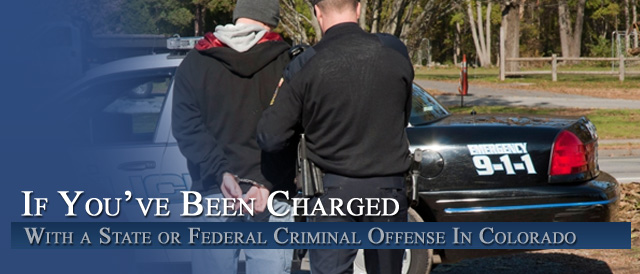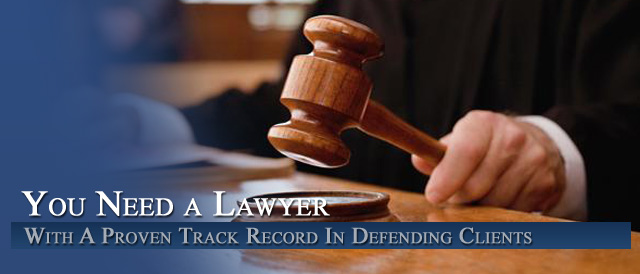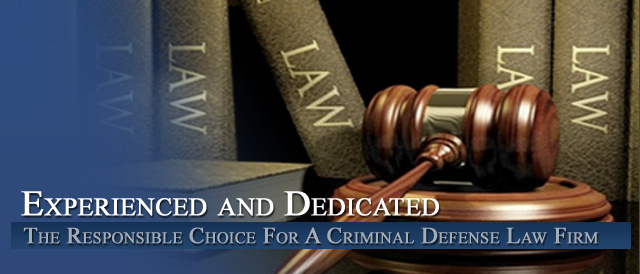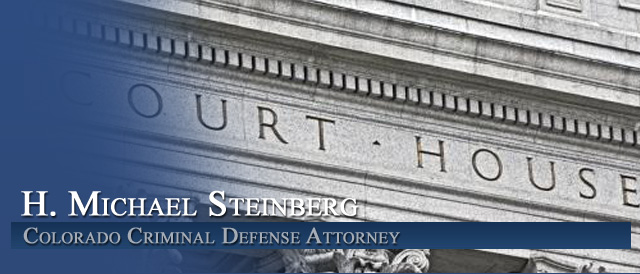




Colorado Criminal Law – Juvenile Criminal Law – When a Child Can Be Prosecuted As An Adult
By The Steinberg Colorado Criminal Defense Law Firm for the defense of Colorado Juvenile Crimes
A person who is less than 18 years of age is considered a juvenile under Colorado law. If charged with a crime, he or she is treated differently than an adult. According to section 19-2-104, C.R.S., the Colorado juvenile justice system and the juvenile court have exclusive original jurisdiction concerning a juvenile 10 years of age or older who violates:
Any federal or state law (except non-felony state traffic, game and fish, andparks and recreation laws or regulations);
Certain laws concerning furnishing cigarettes or tobacco products to minors;
Certain laws concerning ethyl alcohol and marijuana;
County or municipal ordinances, the penalty of which may be a jail sentence of more than ten days (except traffic ordinances); and
Any court order made pursuant to the provisions of the children’s code contained in title 19, C.R.S.
There are, however, certain acts that may warrant the removal of the juvenile’s case to district court via either direct file or a transfer. In district court, the juvenile is tried as an adult and, if convicted, may be sentenced as an adult.
Four factors that affect the ability to try a juvenile as an adult include:
The age of the juvenile;
The type of offense charged;
The extent of the juvenile’s past history of delinquency; and
Whether the district attorney invokes the district court’s original jurisdictionor seeks to transfer a pending juvenile court proceeding to the district court.
As a general rule, the likelihood that a district attorney may file criminal charges against a juvenile as an adult increases with the age of the juvenile, the severity of the charged offense, and the juvenile’s past history of delinquency.
Under Colorado law, the youngest age at which a child may be tried as an adult is 12, if the child is alleged to have committed a class 1 or 2 felony or a crime of violence and the juvenile court transfers the case to the district court. This is discussed in greater detail below.
Direct File
Under section 19-2-517, C.R.S., the district attorney may file charges against a juvenile directly in the district court only if:
The juvenile was 16 years of age or older at the time the offense was allegedly committed
and:
Is alleged to have committed a class 1 or 2 felony or a crime of violence, as defined in section 18-1.3-406, C.R.S.; or
Is alleged to have committed a felony offense involving a weapon; or
Is alleged to have used or possessed and threatened to use a deadly weapon in the commission of a felony offense against a person; or
Is alleged to have committed vehicular homicide, vehicular assault, or felonious arson; or
Is alleged to have committed a class 3 felony as defined by section 18-1.3-401, C.R.S., or sexual assault as described in section 18-3-402 (1) (d), C.R.S., and was, within the previous two years, adjudicated a juvenile delinquent for an act constituting a felony; or
Is alleged to have committed a delinquent act that constitutes a felony and has been determined to be an habitual juvenile offender, as defined in section 19-1-103 (61), C.R.S.
The juvenile was 14 or 15 years of age at the time the offense was allegedly committed and:
Is alleged to have committed murder in the first degree, as described in section 18-3-102, C.R.S., or murder in the second degree, as described in section 18-3-103, C.R.S.; or
Is alleged to have committed sexual assault under the circumstances described in section 18-3-402 (5) (a), C.R.S.; or
Is alleged to have committed any sexual offense classified as a class 3 felony,or sexual assault as described in section 18-3-402 (1) (d), C.R.S., and the juvenile, within the two previous years, has been adjudicated a juvenile delinquent for an act that constitutes a felony; or
Is alleged to have committed a sexual offense that is a crime of violence as defined in section 18-3-406, C.R.S.; or
Is alleged to have committed a felony sexual offense and is determined to be an habitual juvenile offender.
The juvenile was 14 years of age or older at the time of the commission of the alleged offense, has allegedly committed a felony, and has previously been subject to proceedings in district court as a result of a direct filing pursuant to section 19-2-517, C.R.S. or a transfer pursuant to section 19-2-518, C.R.S.
If a district attorney believes direct file charges may be appropriate, he or she must first file a notice of consideration of direct file with the juvenile court and provide a copy to the juvenile or his or her counsel. The district attorney’s decision must be guided by a consideration of the list of statutory factors that relate to the appropriateness of direct file.
After the district attorney files the notice, the juvenile has 14 days to provide the district attorney with information regarding the statutory factors the district attorney must consider in deciding whether to direct file. The district attorney may not direct file charges until the 14 days have passed and must consider all of the statutory factors when determining whether to direct file.
Juveniles who have been charged by direct file and convicted may be sentenced as adults, or, if they have not committed certain exclusionary offenses and are less than 16 years of age, to the youthful offender system in the Department of Corrections, or to the Colorado juvenile justice system.
Transfer
Under section 19-2-518, C.R.S., the juvenile court may order a juvenile’s case transferred to the district court if:
The juvenile was 12 or 13 years of age at the time the juvenile allegedly committed a delinquent act that would constitute a class 1 or 2 felony or a crime of violence, as defined in section 18-1.3-406, C.R.S., if committed by an adult or
The juvenile was 14 years of age or older at the time the juvenile allegedly committed a delinquent act that would constitute a felony if committed by an adult.
If the juvenile satisfies one of these criteria, the juvenile court must then determine, after investigation and a hearing, if it would be contrary to the best interests of the juvenile or of the public to retain jurisdiction and try the juvenile in juvenile court.
Upon that determination, the juvenile court may waive jurisdiction and transfer the case to the district court for criminal proceedings. Based on the crime the juvenile is convicted of committing and his or her previous criminal history, the district court judge may sentence the juvenile as an adult, sentence him or her to the youthful offender system, or sentence him or her according to the juvenile sentencing provisions.
* The article above is reprinted from a – A Publication of the Colorado Office of Legislative Legal Services
Other Articles of Interest:
- 021. COLORADO CRIMINAL CODE – WRONGS TO AT-RISK ADULTS AND AT-RISK JUVENILES
- Juvenile Records Law
- Charging a Juvenile as an Adult in Colorado
- Colorado Statutory Rape And – Juvenile Sex – Can You Be Prosecuted In Colorado – 18-3-402(1)(e)
- Juvenile FAQs












